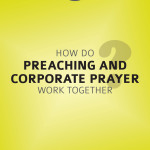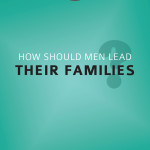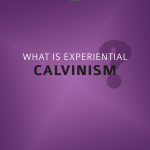Reformation Heritage is quietly putting together a wonderful little series of booklets on the theme of “Cultivating Biblical Godliness.” You might consider buying a few of these slim volumes for your church’s bookstore.
Here’s what RHB has to say about the series:
D. Martyn Lloyd-Jones once said, “The world today is looking for, and desperately needs, true Christians. I am never tired of saying that what the Church needs to do is not to organize evangelistic campaigns and attract outside people, but to begin herself to live the Christian life. If she did that, men and women would be crowding into our buildings. They would say, ‘What is the secret of this?’”
Many people who are new to the church need instruction in the most basic aspects of godly living. Even where churches are engaged heavily in discipleship, visitors and members often have gaps in their understanding and practice. One of the greatest needs of our time is for the Spirit of God to cultivate biblical godliness in us in order to put the glory of Christ on display through us, all to the glory of God the Father.
For these reasons, Joel Beeke and Ryan McGraw are coediting a series of booklets titled Cultivating Biblical Godliness. These booklets treat matters that are vital to Christian experience, and each contribution aims to address a wide variety of people and circumstances at a fundamental and introductory level. This includes teaching people what to believe in order to practice personal holiness as well as specific directions on how to cultivate biblical godliness in relation to issues that are common to God’s people.
The distinctive feature of this series is its experiential tone. While some booklet series aim to enlighten the mind, these booklets aim to warm the affections as well. The goal is to promote communion with the triune God and to transform the entire person in thought, speech, and behavior. To this end, we intend to include a wide range of authors whom the Spirit has blessed to skillfully stir up the church to personal holiness and affection to Christ through their preaching and writing ministries.
We need a Christianity that puts the transformative power of God in the gospel on display through developing a communion with God that is visible to the world. Our prayer is that through this series, the Lord would revive His church by producing Christians who are full of love for Christ, who deny themselves in order to follow Him at great personal cost, and who know the joys of walking with the triune God. This is the kind of Christianity that we need. This is the kind of Christianity that the triune God has used to turn the world upside down. May He be pleased to do so again.
Current Titles
 What is a Christian? by Ryan McGraw. What is a Christian? This is a truly vital question because never-ending happiness or everlasting horror hinges upon understanding the correct, biblical answer to it. Yet few questions have provoked so much confusion. Ryan McGraw lays out what it means to be a Christian in terms of what one believes, what one experiences, and what one does—a full-orbed Christianity of head, heart, and hands. If you are investigating what it means to follow Jesus Christ, if you are wrestling with the question of whether you are truly saved, if you desire to grow as a Christian by getting back to the basics, or if you are seeking to help others, here are simple and clear answers from the Holy Scriptures.
What is a Christian? by Ryan McGraw. What is a Christian? This is a truly vital question because never-ending happiness or everlasting horror hinges upon understanding the correct, biblical answer to it. Yet few questions have provoked so much confusion. Ryan McGraw lays out what it means to be a Christian in terms of what one believes, what one experiences, and what one does—a full-orbed Christianity of head, heart, and hands. If you are investigating what it means to follow Jesus Christ, if you are wrestling with the question of whether you are truly saved, if you desire to grow as a Christian by getting back to the basics, or if you are seeking to help others, here are simple and clear answers from the Holy Scriptures.
 What Does it Mean to Love God? by Maurice Roberts. How do you love a person you cannot see? What do you give to someone who has it all? Why is it so important to love the Creator of the galaxies? What does it mean to love God? Jesus taught us that the greatest commandment given to mankind is to love the Lord with all our mind, heart, and strength, and yet what it means to love God can be a profound mystery. Maurice Roberts explains the biblical meaning of love for God and shows how such love moves us to do many things, from thirsting for God to praying for our neighbor’s salvation. He shows that love for God is like a sweet fire that must lift all our hearts, all our souls, all our minds, and all our strength in a holy flame toward God.
What Does it Mean to Love God? by Maurice Roberts. How do you love a person you cannot see? What do you give to someone who has it all? Why is it so important to love the Creator of the galaxies? What does it mean to love God? Jesus taught us that the greatest commandment given to mankind is to love the Lord with all our mind, heart, and strength, and yet what it means to love God can be a profound mystery. Maurice Roberts explains the biblical meaning of love for God and shows how such love moves us to do many things, from thirsting for God to praying for our neighbor’s salvation. He shows that love for God is like a sweet fire that must lift all our hearts, all our souls, all our minds, and all our strength in a holy flame toward God.
 How Do I Kill Remaining Sin? by Geoff Thomas. Are you dying? If not, then you have not yet begun to live. The Bible teaches us that when God forgives a person by the death of Jesus Christ, He starts a process in him of dying daily—putting his sinful habits to death as he lives in union with Christ. Though being born again brings fundamental changes in a person’s soul, every Christian has sin remaining in him. Pastor Geoffrey Thomas explains how Christians can fight and conquer sin in their lives by the grace of Christ so that they grow to be more like Jesus, living wholeheartedly for the Lord one day at a time.
How Do I Kill Remaining Sin? by Geoff Thomas. Are you dying? If not, then you have not yet begun to live. The Bible teaches us that when God forgives a person by the death of Jesus Christ, He starts a process in him of dying daily—putting his sinful habits to death as he lives in union with Christ. Though being born again brings fundamental changes in a person’s soul, every Christian has sin remaining in him. Pastor Geoffrey Thomas explains how Christians can fight and conquer sin in their lives by the grace of Christ so that they grow to be more like Jesus, living wholeheartedly for the Lord one day at a time.
 How Do Preaching and Corporate Prayer Work Together? by Ryan McGraw. In John 14:12–14, Jesus declares that His people would accomplish “greater works” than His. What are these greater works the church would accomplish, and how could they be even greater than Christ’s miracles? With biblical insight, author Ryan McGraw takes a closer look at this passage, along with the book of Acts, and explains that these greater works are connected to corporate prayer and faithful preaching, which are vital to the life of every local congregation. How Do Preaching and Corporate Prayer Work Together? affirms the priority of prayer and preaching in the church and offers practical instruction for effective corporate prayer that, by God’s grace, will bear fruit in preaching.
How Do Preaching and Corporate Prayer Work Together? by Ryan McGraw. In John 14:12–14, Jesus declares that His people would accomplish “greater works” than His. What are these greater works the church would accomplish, and how could they be even greater than Christ’s miracles? With biblical insight, author Ryan McGraw takes a closer look at this passage, along with the book of Acts, and explains that these greater works are connected to corporate prayer and faithful preaching, which are vital to the life of every local congregation. How Do Preaching and Corporate Prayer Work Together? affirms the priority of prayer and preaching in the church and offers practical instruction for effective corporate prayer that, by God’s grace, will bear fruit in preaching.
 How Should Men Lead Their Families? by Joel Beeke. God’s Word teaches us that Jesus Christ was ordained by God and anointed by the Spirit for His work as prophet, priest, and king of His children. Those who are in union with Him share His offices in a limited but important way. In this booklet, Joel Beeke explains how husbands and fathers should lead their families as prophets, priests, and kings. Filled with biblical wisdom and practical application, How Should Men Lead Their Families? is a helpful guide for men who desire to bear the image of the Father of glory and of the heavenly Husband as they lead, teach, love, evangelize, protect, and rule over their wives and children.
How Should Men Lead Their Families? by Joel Beeke. God’s Word teaches us that Jesus Christ was ordained by God and anointed by the Spirit for His work as prophet, priest, and king of His children. Those who are in union with Him share His offices in a limited but important way. In this booklet, Joel Beeke explains how husbands and fathers should lead their families as prophets, priests, and kings. Filled with biblical wisdom and practical application, How Should Men Lead Their Families? is a helpful guide for men who desire to bear the image of the Father of glory and of the heavenly Husband as they lead, teach, love, evangelize, protect, and rule over their wives and children.
 What is Experiential Calvinism? by Iain Hamilton. “There is no such thing as ‘dead Calvinism,’” writes author Ian Hamilton. Calvinism, simply put, is biblical Christianity. No mere human devised theological system, Calvinism is rooted in and shaped by God’s revelation in Holy Scripture. Hamilton asserts that Calvinism is “natively experiential.” In What Is Experiential Calvinism?, the author shows us that Calvinism is far richer and more profound than five points and helps us see that the lives and ministries of those who are true Calvinists pulse with living, Spirit-inspired, Christ-glorifying, God-centered truth.
What is Experiential Calvinism? by Iain Hamilton. “There is no such thing as ‘dead Calvinism,’” writes author Ian Hamilton. Calvinism, simply put, is biblical Christianity. No mere human devised theological system, Calvinism is rooted in and shaped by God’s revelation in Holy Scripture. Hamilton asserts that Calvinism is “natively experiential.” In What Is Experiential Calvinism?, the author shows us that Calvinism is far richer and more profound than five points and helps us see that the lives and ministries of those who are true Calvinists pulse with living, Spirit-inspired, Christ-glorifying, God-centered truth.
 Why Should I Fast? by Daniel Hyde. Today, the church seems to have forgotten about the spiritual discipline of fasting. Most of us have never heard a sermon about it, and few of us have ever practiced it. We think of fasting as an antiquated relic of the past. So why should we fast in an age of fast food? Pastor Daniel R. Hyde argues that “fasting is actually a basic biblical teaching and practice, one that is vital to cultivating godly living in an ungodly generation.” Fasting is a means to the end of abiding, deep, and personal communion with the triune God through prayer. The author explains what fasting is, provides biblical examples of it, reminds us of what Jesus taught regarding it, and tells us how to go about it.
Why Should I Fast? by Daniel Hyde. Today, the church seems to have forgotten about the spiritual discipline of fasting. Most of us have never heard a sermon about it, and few of us have ever practiced it. We think of fasting as an antiquated relic of the past. So why should we fast in an age of fast food? Pastor Daniel R. Hyde argues that “fasting is actually a basic biblical teaching and practice, one that is vital to cultivating godly living in an ungodly generation.” Fasting is a means to the end of abiding, deep, and personal communion with the triune God through prayer. The author explains what fasting is, provides biblical examples of it, reminds us of what Jesus taught regarding it, and tells us how to go about it.
 How Should Teen Read the Bible? by Joel Beeke. Most Christians know that they should read the Bible, and many have tried, but it is not unusual for people to get stuck, get lost, or get discouraged. Here is a booklet that lays out wise guidelines for how to read the most important book in the world and not give up. Joel Beeke offers many helpful tips on how to benefit from the Scriptures with the constant awareness that our attitude is crucial. Written especially for young people, How Should Teens Read the Bible? Is an extremely practical resource for anyone who wants to read the Scriptures with regularity, joy, and delight.
How Should Teen Read the Bible? by Joel Beeke. Most Christians know that they should read the Bible, and many have tried, but it is not unusual for people to get stuck, get lost, or get discouraged. Here is a booklet that lays out wise guidelines for how to read the most important book in the world and not give up. Joel Beeke offers many helpful tips on how to benefit from the Scriptures with the constant awareness that our attitude is crucial. Written especially for young people, How Should Teens Read the Bible? Is an extremely practical resource for anyone who wants to read the Scriptures with regularity, joy, and delight.
